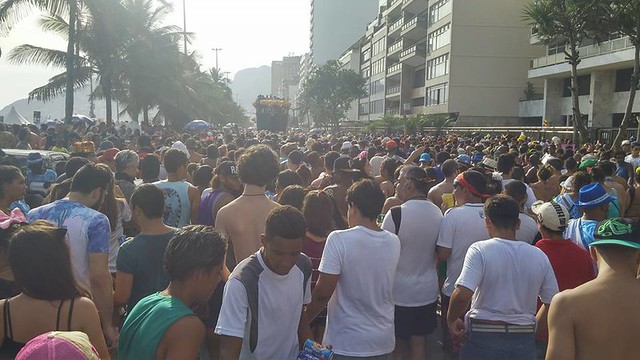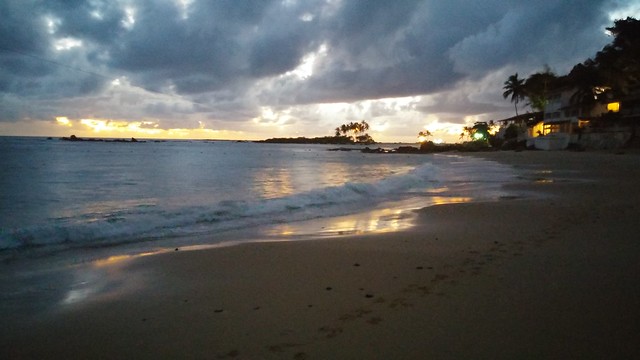“Spring training” in Rio de Janeiro
By David L.
Feb. 29, 2016
In baseball, spring training is the period before the Major League Baseball season begins where the teams practice together after the off-season break and play scrimmage games against on another. In a way, the last month and a half has felt like my own personal “spring training.” I arrived in Rio de Janeiro on Jan. 6, but my classes here don’t start until March. So what have I been up to? Here’s a few things that come to mind.
The beach. Rio de Janeiro is known for its countless beaches. I live just a few blocks away, so basically any day I don’t have something planned, I’ll head to the beach for a couple hours with some friends. Growing up in Missouri with no beaches anywhere nearby, it’s still hard to believe that I can literally walk to the beach every day here (and meanwhile, back home, it’s snowing!).
Learning formal Portuguese. This is very important for me and the main reason I wanted to come to Brazil in the first place. Before arriving in Rio de Janeiro, I had no Portuguese knowledge, but after about a month of independent study (thanks, YouTube!) combined with my Spanish background, I was able to test into an intermediate level pre-semester Portuguese course. I took this month-long course through the university alongside other exchange students from around the world.
Learning informal Portuguese. More than any other language I have encountered, Brazilian Portuguese is fill with a crazy amount of giria, or slang. Spoken Portuguese is very different from written Portuguese, almost to the point where it sometimes seems that I am actually learning two different languages. The best way to learn this type of Portuguese? Talking to locals, or cariocas, whenever I have the opportunity.

Carnival. The biggest part on the planet, Carnival, is more than a week of loud music, dancing in the streets, costumes, and overall energy and excitement. It takes places every year in early February throughout Brazil, but Rio de Janeiro is known for being one of the best in the country. Each neighborhood has planned events, or blocos, with local musicians and millions of people line the streets to come listen and have a good time together. Carnival is nonstop; some of the early blocos start at 7 a.m. and the later ones continue until 4 a.m. the following morning.

Traveling. I recently came back from a weeklong trip to Salvador, Bahia, in the northern part of Brazil. The trip was an amazing experience, especially with the cultural history of Salvador. While there I watched a capoeira performance, a traditional Brazilian mixture of dance and martial arts. Of course, I also stopped by a few more beaches as well.
It’s been a great time so far in Rio de Janeiro, and I’ve learned a lot without event going to class yet.
About the blogger
David L. is studying abroad at the Pontifical Catholic University of Rio de Janeiro in Rio de Janeiro, Brazil.